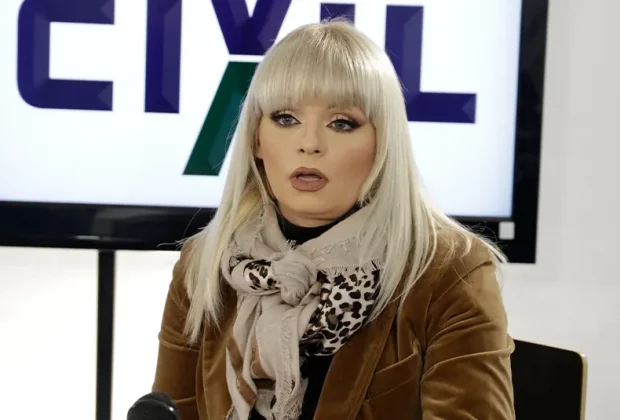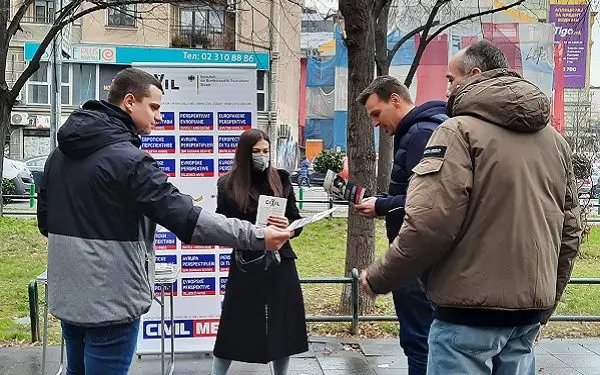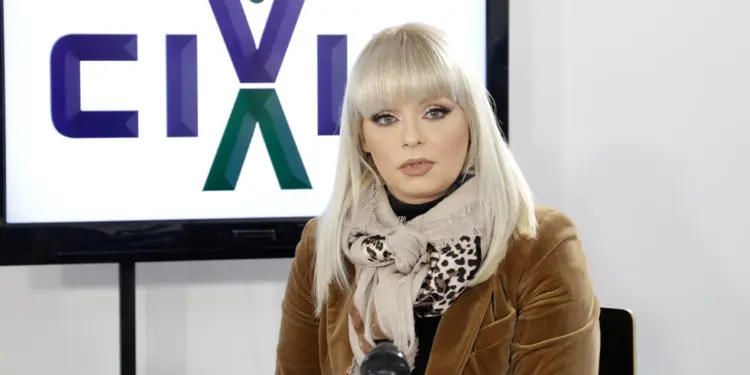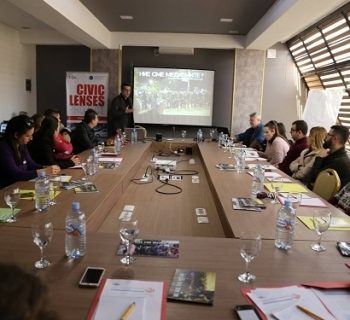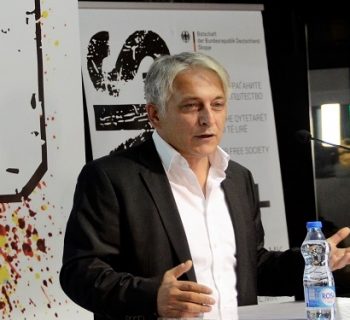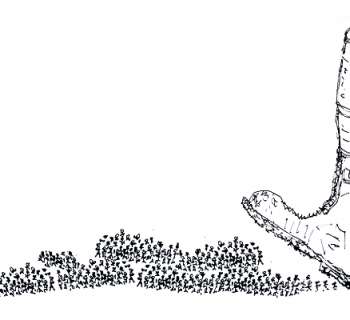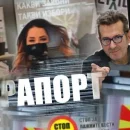First of the three parts of the mega interview with Daniela Rangelova, in which she openly talks about the political situation in the country, about the past, present and future of VMRO-DPMNE and about hate speech, to which she is also a target
Daniela Rangelova is one of the most outstanding women in Macedonian politics. Once a close collaborator of former Prime Minister Nikola Gruevski, she says that she has never moved away from her own views. To the public, she is also known as leader of VMRO-DPMNE’s Women’s Union. As an MP from the along the lines of VMRO-DPMNE, Rangelova was President of the Committee on Equal Opportunities for Women and Men in the Macedonian Parliament, as well as several other parliamentary bodies and committees. During her long political career, due to her direct and critical approach on key issues in society and politics, she has often been and is a target of hate speech by various sides, including her party.
CIVIL MEDIA: Let’s start with the current situation of a political party in which you are a veteran, and where a good part of your life you dedicated to activities, to development, especially in the area of work of the Women’s Union. What is the situation in VMRO-DPMNE? You now have a new leadership, you had one candidate, but with a maximum number of votes that Mr. Mickoski won at the Congress.
RANGELOVA: The situation is seemingly like it seems to the public, Hristijan Mickoski confirmed his second mandate as President of VMRO-DPMNE. He had delegates elected, his close people, and we expected this. Only the situation has changed here, because, actually, VMRO-DOMNE won these local elections. No one else was encouraged to be an opponent of Hristijan Mickoski, because, unfortunately, not only in VMRO-DPMNE, but in all political parties, clientelism has the most influence. When members see that they have already won some elections, then they don’t want to separate from the main core, from the center, from the axis, and that is usually the president and the leadership. That is why everyone unanimously gave him support.
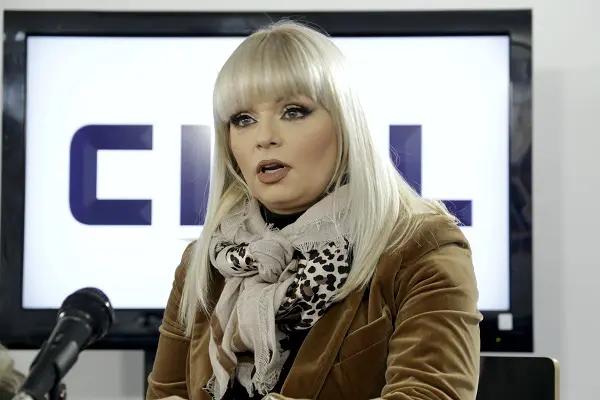
Daniela Rangelova
CIVIL MEDIA: Last year, many people opposed Mr. Mickoski. There were calls for an extraordinary congress, there were several attempts for democratization of VMRO-DPMNE, to avoid the situation in which delegates are appointed by the leader. How far is that matter, obviously nothing has been done in that respect?
RANGELOVA: Well, I think that a real attempt to replace Hristijan Mickoski was not made. An initiative was organized by the so-called “Marriott Coalition”. I find it rude to say that, because some of those people who were in that initiative are my colleagues, and I respect that they were encouraged.
I didn’t join that coalition, because I think that this coalition was doomed to failure from the very start. In my opinion, a leader is not changed in such a way, and is not changed by an initiative of people who have appointed Mickoski to be the leader of the party.
When a leader is to be changed, you really need to want that, and not to criticize in the public, in order to get a good position within the party. Most often, even the people who criticize, I am talking about some of them, don’t believe that Hristijan Mickoski will be removed. Unfortunately, very few were encouraged.
I had another idea, I thought that it was the membership that is supposed to raise the initiative for removing Hristijan Mickoski. But things change. After several defeats, he didn’t want to take responsibility. In my opinion, when he loses he should leave, and when he wins, he should stay. He was going on the long run – at some point SDSM will lose, which actually did happen.
Otherwise, I think that they didn’t remove him at all from the positions in the party, because, I will say again, clientelism is very big in the party. They criticize him, but behind his back, and most often, when you ask them whether they agree with VMRO-DPMNE’s current policies, they say: “no, but I haven’t got the nerves and stomach to go out in public and say so, because I will be condemned by the membership, I will be massacred on the social networks”.
Not everyone can take that, I know that for some people that is very hard. For example, I am immune to such “actions”. I had that attitude towards me also when SDSM were in opposition, and now VMRO-DPMNE, but I am sorry that many people who I know and who are quality people and would be encouraged to get involved in politics do not do so precisely because of such conditions in our country.
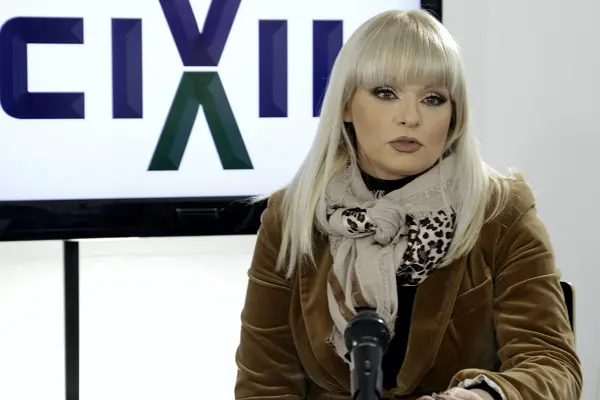
Daniela Rangelova
CIVIL MEDIA: Who rules in VMRO-DPMNE, Gruevski or Mickoski? Or together?
RANGELOVA: Hristijan Mickoski is the president of the party. It’s obvious that several streams influence, I wouldn’t personalize, but what interests me is which foreign political forces influence our political party, which for me is a key issue.
That is also my main problem in the disagreement with VMRO-DPMNE’s leadership. I think that Gruevski has influence, certainly, because for a long time, when he was president, for 12 years, he was also a prime minister for a long time. He has also helped many people personally, and there were periods when he pursued good policies, I think that his mistake was in regards to the international policy and perhaps partly with the public, with the media, but long years of rule do that.
I think the same is happening in SDSM. In the past period, when someone got comfortable in the chair, in the ruling position, he got comfortable and didn’t listen to criticism. Here, I would tell a though from Mark Twain in that we need to listen to the citizens more then we need to talk, and not to spread empty phrases, because if it were the opposite, we would have been born with two mouths, instead of two ears. Unfortunately, society demands something else, more promises, empty promises, creating expectations and little realization.
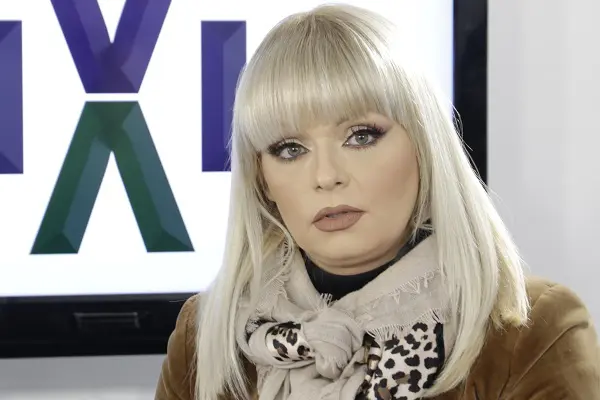
Daniela Rangelova
CIVIL MEDIA: Indeed, the democratic dimension of political parties is problematic, with the exception of some novelties we saw in SDSM, with general elections from the entire membership. In regards to VMRO-DPMNE, is the leader in such a situation to be able to do whatever he wants in the party, to manage the finances of the party? We know of one case against the predecessor of Mr. Mickoski, Mr. Gruevski. Does the president or party leadership have mechanisms to strike back and in which way if you oppose him? You mentioned “burning” on the social networks…
RANGELOVA: Regarding the financing, here I would not single out VMRO-DPMNE, because I think that all political parties equally are financed the same way. And that is the adopted Law on Financing Political Parties, but it does worry me that not a single political party gives transparent accountability on where they spend their money. And it really does concern a serious amount of money.
Each party, for example, both VMRO-DPMNE and SDSM, receive about one million and eight hundred thousand euros, and that is a serious amount of money. I think, since I have run an organization, that there is no need for political parties to have such a large amount. On the other hand, and even when they are in opposition, they receive so much funds, and they don’t want to leave the position, because they really are comfortable in their position and dispose with funds that won’t bother them even if they are in opposition for a long time.
As to whether we would massacre the people who talk, that’s obvious! And in any political party. The social networks have become a place where people settle scores with each other, where one can express words, and the one being attacked cannot prove the opposite.
Unfortunately, from all that cyber bullying, there is no response from a single institution. And that is the biggest problem and challenge of our society, not because of the politicians, but because of the future of our young generations. Because, apart from this happening in the political field, many children are exposed as well, teenagers are exposed to cyber bullying. No one is reacting.
Here, in neighboring Serbia, an influencer took her own life because of cyberbullying. I think this is a challenge that the country needs to deal with, the government and the opposition, because it really can disturb the consciousness of the young generation. Politicians, and those who have decided to criticize, are already immune, and mostly expect it, and it is nothing new to them.
I, for example, cannot be moved by anything, because I have said that I will criticize loudly. They can expel me from a political party, but it’s better that I state my views, which in the long-term are constant, and as such I will keep them, instead of to be a clientalist, and to run away from myself for some political position.
When I resigned from the party, I promised myself that I would never again behave as someone would order me. Normally, the program and ideology to which you belong should be respected. When you become a member, you know what the ideology and political program are, but still there should be democracy, because we are different individuals, we express ourselves differently, we think differently, and that is actually the beauty of a society and of political action – different thoughts to bring to the same goal that will be in the interest of the citizens of the state.
Conversation led by: Xhabir Deralla
Camera: Atanas Petrovski
Editing: Arian Mehmeti
Text editing: Diana Tahiri
Photography: Goran Naumovski
Translation: N. Cvetkovska
 Македонски
Македонски Shqip
Shqip English
English
